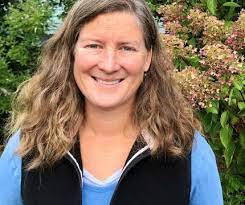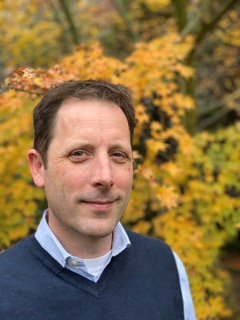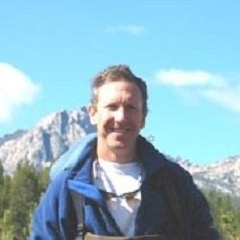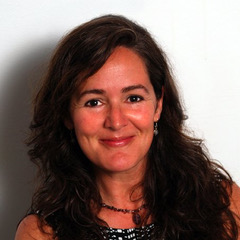Affiliate Members
Active producers of products and services relevant to, or supportive of, SC2 interests.
This category is intended to engage researchers or practitioners who have limited time or motivation to take a leadership role in SC2 but want their work to be formally affiliated with the group.
• Attend SC2 meetings from time to time
• Collaborate on SC2 research projects on a case-by-case basis
• Share research results or products from the Affiliate Member’s own research projects as appropriate
• Participate in SC2 outreach activities on a case-by-case basis
• Vote on new Affiliate members

Dr. Jeffrey Fisher is an aquatic ecologist and ecotoxicologist with 25 years of post-doctoral experience evaluating physical, chemical, and biological impacts on aquatic animals and ecosystem function. He has conducted aquatic habitat evaluations, biodiversity surveys, ecological and invasive species risk assessments, environmental remediation, fish health assessments, and habitat restoration projects in marine, freshwater, and wetland environments in many regions of the country. He joined Seattle City Light a little over a year ago, returning to the U.S. from directing the Marine Environmental Services division for Ireland’s Marine Institute. Prior to this work, he served the National Marine Fisheries Service from 2011 to 2016 as Branch Chief of the Lower Columbia salmon recovery domain, after earlier positions in research, tribal, and private sector organizations, and the foreign service. These broad experiences have afforded Dr. Fisher objectivity in evaluating natural resource management issues in aquatic environments in particular. He is drawing from his past experience and research to address challenges of aquatic invasive species for natural resource management in the upper Skagit system, and the actions being implemented by City Light to address aquatic invasive species concerns.

Dr. Kathryn Sobocinski is an Assistant Professor in the Department of Environmental Sciences and the Marine and Coastal Science program at Western Washington University. She is an applied marine ecologist focusing on fishes, fish habitats, and impacts of human disturbance and climate change in coastal ecosystems. She uses statistical, ecological, and individual-based models in conjunction with field data to describe patterns and processes in these ecosystems. Her interests in coastal ecosystems developed from her studies at Connecticut College (BA in 1998), University of Washington (MS in 2003), and Virginia Institute of Marine Science (PhD in 2014). Her studies have largely focused on juvenile fishes in coastal marine environments and has included food web ecology, identifying characteristics of nursery habitats, fisheries oceanography describing patterns of distribution based on environmental factors, ecosystem modeling related to rising temperatures in shallow-water ecosystems, and socio-environmental systems research. Currently, Dr. Sobocinski works on several projects within the Salish Sea, including: an investigation of the trophic and water quality impacts of large jellyfish aggregations; ecosystem indicators related to salmon marine survival; and serving as the lead scientist/author for the State of the Salish Sea report coordinated by the Salish Sea Institute at WWU.

Dr. Wes Lauer works as a professor in the civil and environmental engineering and environmental science programs at Seattle University. His educational background includes degrees from the University of Minnesota (Ph.D., 2006), U.C. Berkeley (M.Eng., 1998), and Walla Walla University (B.S.E. in Civil Engineering, 1996). Research interests focus on measurement and simulation of decadal-scale changes in channel and floodplain morphology along alluvial rivers. The work has applications in flood management, geomorphic assessment of riparian habitat quality, and numerical modeling of hydraulic, hydrologic and geomorphic processes. He has also worked professionally as a consulting civil engineer and hydrologist.

For over 20 years, Dr. Peter Kiffney has been working in the Watershed Program at National Marine Fisheries Service’s Northwest Fisheries Science Center, and he has done extensive research on the habitat needs of salmon and other species of the Pacific Northwest. He received his B.S. degree in Geology from the University of North Carolina and his M.S. in Aquatic Science from the University of California-Davis, followed by a Ph.D. in Fishery and Wildlife Biology and Ecology at Colorado State University. After a 2‑year postdoctoral fellowship at the University of British Columbia, he joined the Watershed Program in 1998. His interests in aquatic ecology are broad but primarily focus on the rearing ecology of Pacific salmon and trout. He is especially interested in understanding the food system that supports Pacific salmon and trout so that we can improve management strategies for conserving these species in the face of rapid environmental change.
Other SC2 Affiliates

Amy Trainer brings her passion to restore and protect the Salish Sea and over a decade of strategic advocacy and West Coast marine conservation leadership to Puget Sound. She is a former practicing land use and environmental lawyer who has served as a non-profit staff attorney in Friday Harbor where she protected endangered Southern Resident Killer Whales, and as a special advisor to the Makah Indian Tribe of Neah Bay where she was instrumental in establishing the Makah Tribal Office of Marine Affairs. As a land trust executive director in Colorado, she conserved hundreds of acres of land and senior water rights and received an award for implementing sustainable ranching practices.
From 2010–2015 Amy served as the executive director of the Environmental Action Committee of West Marin where she championed the congressional wilderness designation of Drakes Estero, the ecological heart of Point Reyes National Seashore and only marine wilderness area on the West Coast, and led statewide coastal protection advocacy efforts.
Amy joined the Swinomish Indian Tribal Community in March 2018 as the environmental policy analyst, and became environmental policy director in August 2019. She works at the intersection of public policy, law and science to provide technical and policy advice to the Tribe’s Senate, and works on a wide range of local, state and federal fisheries and habitat policy matters. In December 2019, Amy was appointed to the Skagit Environmental Endowment Commission as an Alternate Commissioner by Seattle Mayor Jenny Durkan.
